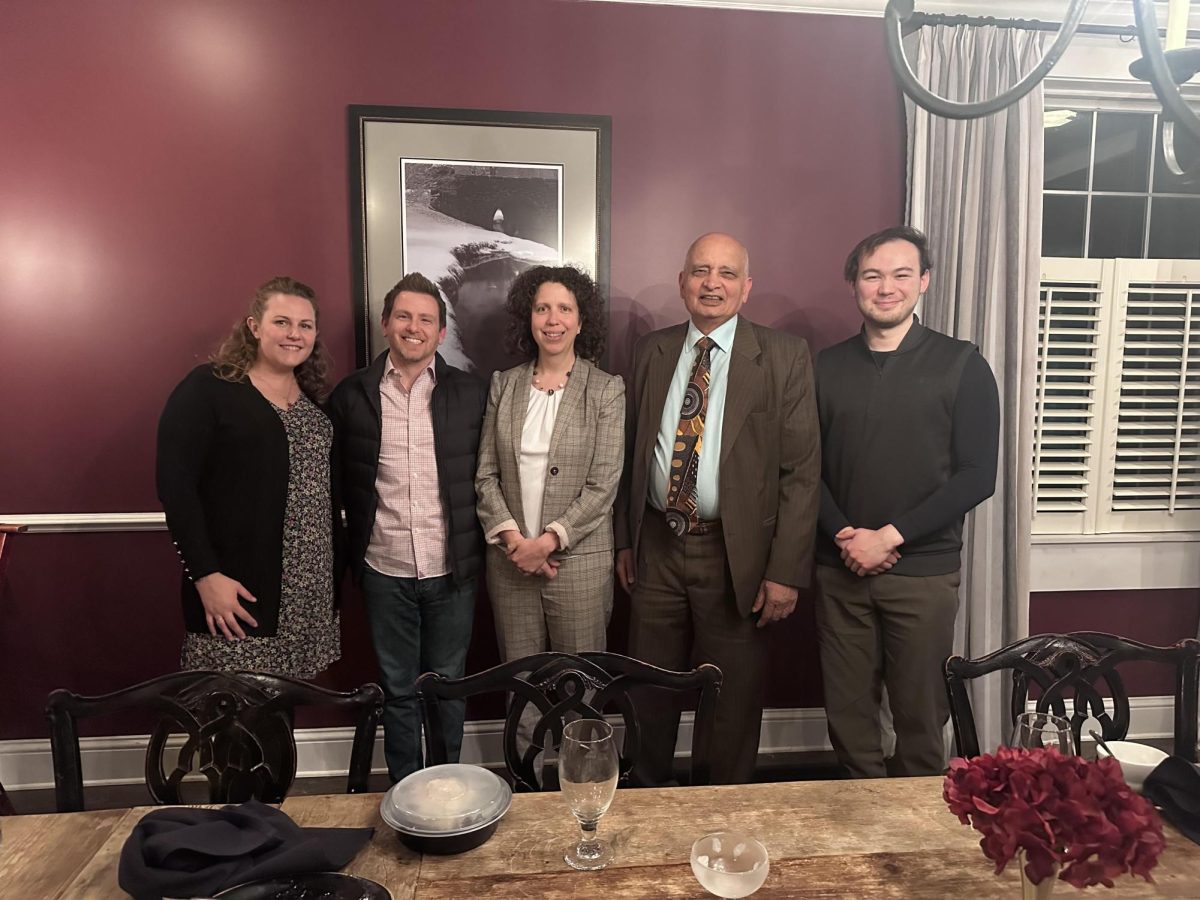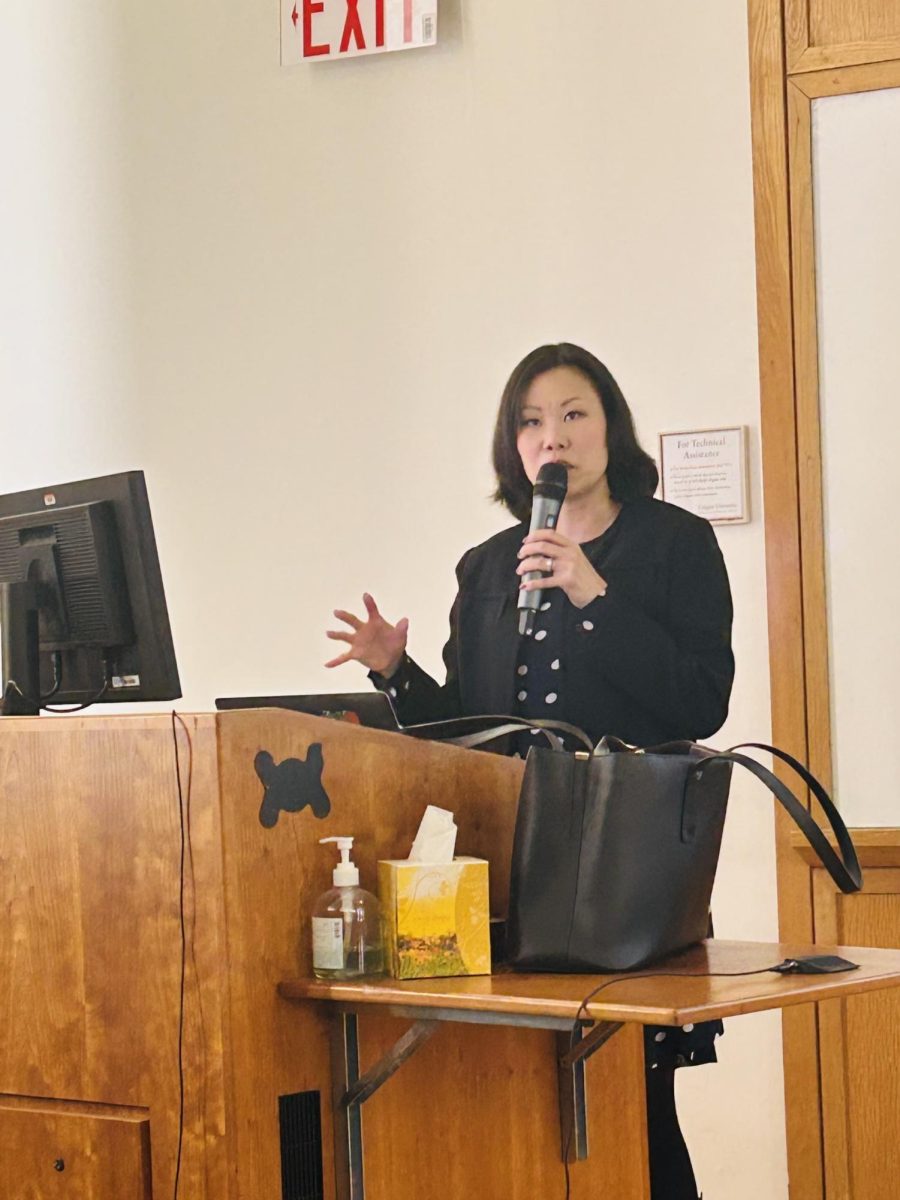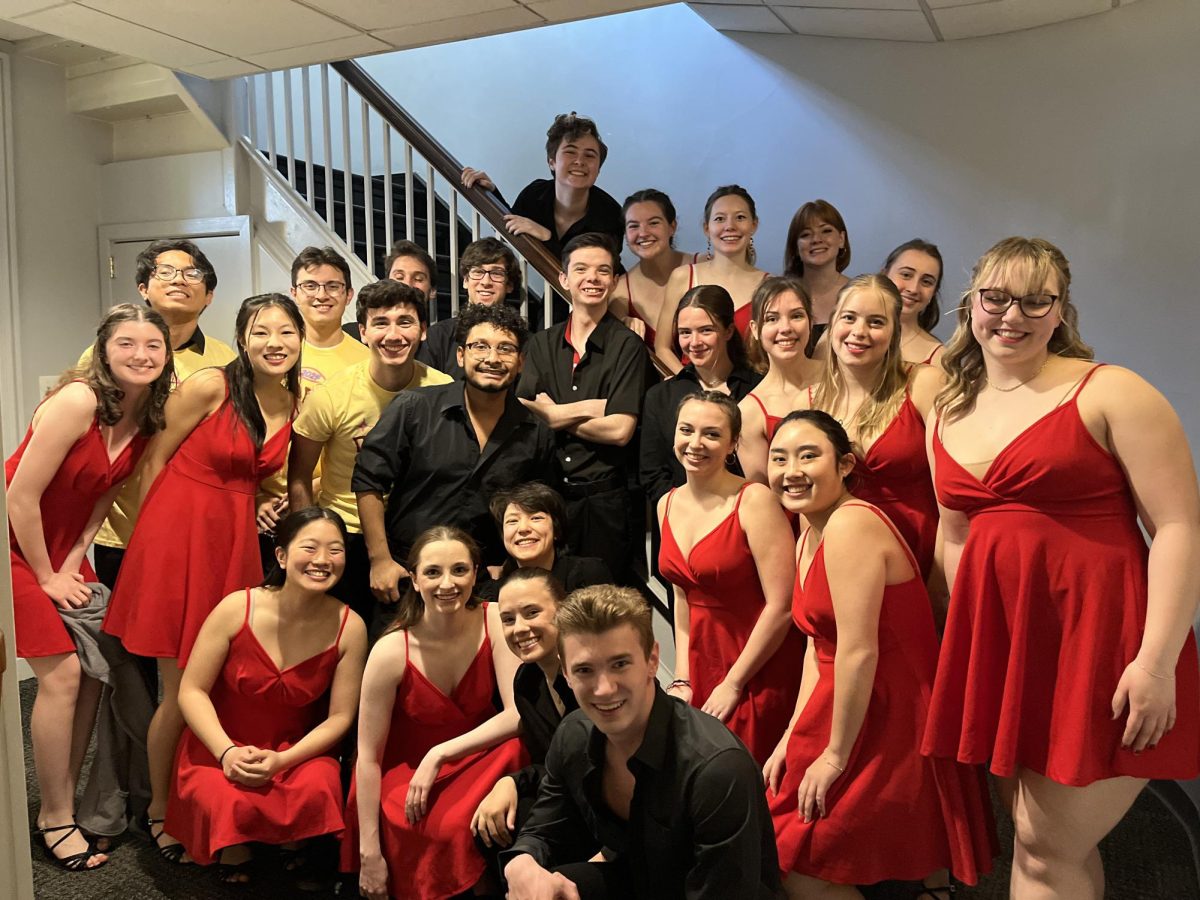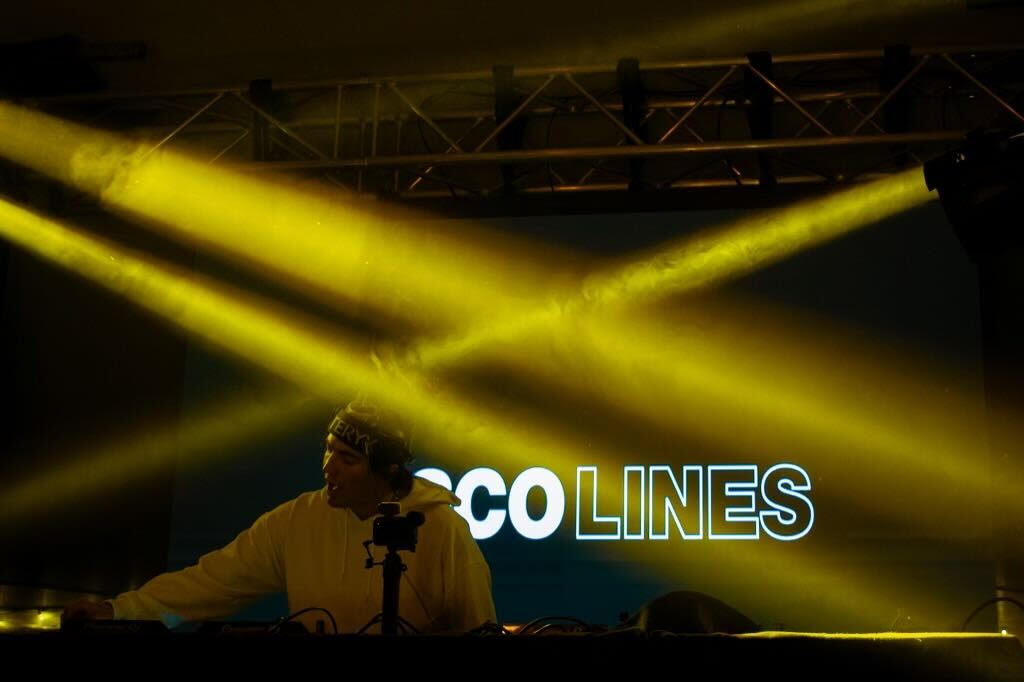The Colgate University Center for Freedom and Western Civilization, Classics Department and Jewish Studies Program hosted Professor Johnathan J. Price on Tuesday, March 19, as part of the Arts and Humanities Spring 2024 Colloquium Series. Price is the Fred and Helen Lessing Professor of Ancient History at Tel Aviv University and is the author of many books on Greek and Roman historiography. The talk focused on ancient Greek theories of Thucydides, Plato and Aristotle that explain different perspectives on civil war and how to use those to understand the unsolvable aspects of civil wars.
Price started off the lecture by stating that he wanted to change the title of the lecture from “Ancient Civil War Theories and Their Relevance to Modern Conflicts” to “Civil War: An Unsolved Problem in Ancient History,” as it pertains to how the issue has continued to develop from the ancient Greeks’ thinking to modern day philosophers and political scientists.
In his talk, he analyzed the theories of Thucydides, Plato and Aristotle surrounding civil war in order to explain how they relate to modern day conflicts that have played out over centuries. The talk was focused on passages written by the Ancient Greek philosophers and dove deep into their ideas and teachings before translating them into the modern day.
Before analyzing the different ancient passages, he introduced the words “polis” and “stasis” that are used in the ancient texts meaning “city states” and “civil war,” respectively. These are the wordings of the ancient text and were prevalent in his lecture to explain that no ancient theory of stasis could actually be used to prevent a civil war from occurring.
Price referred to Thucydides’ texts, in which he explains how during war, the variance in conditions impacts the state of mind of the people within the state.
“These harsh conditions changed the mind of the people [so much so] that they did things they would not have thought to do in times of peace and comfort,” Price said.
Price explained how Thucydides’ texts are different from the works of Plato and Socrates.
“Thucydides’ model of stasis […] is not specific to any political system or historical context, but is based in human characteristics that if you believe in a singular human nature, […] the human behaviors of stasis could be the same according to Thucydides, everywhere at any time,” Price said.
As he moved through the lecture after presenting the basis of his thoughts on the reasoning for the inability of ancient Greek philosophers to provide an actual way to solve or avoid civil war, he began to talk about civil wars that have occurred in recent centuries, including the American Civil War.
Many students and professors attended the lecture both for classes and to gain personal knowledge on the topics being discussed.
First-year Betsy Wall attended the lecture and shared her thoughts on Price’s presentation.
“The lecture spoke a lot to the relevance of classical antiquities to modern conflicts,” Wall said.
At the end of the lecture, Price held a question and answer session in which other professors presented some of their ideas, adding more information and depth to the topics being discussed. Students asked many interesting questions surrounding the passages read and tried to understand some of Price’s own thoughts on modern-day problems. He ended his lecture with a message to the younger generation about how it is now their duty to attempt to solve the problem of civil war, but that it will be very difficult.
“If you don’t solve the problem of civil war, well, that’s okay, because thousands of years of thought and effort have not solved it,” Price said.
First-year Georgia Porter reflected on how the lecture related to her second major and her overall interest in going to events outside of class.
“Not only was that lecture related to my classes and second major [classical studies], but it was also just incredibly interesting overall. The way he explained the ‘symptoms’ of civil war in antiquity and then drew comparisons to various states of the world in the present day really made the lecture feel more pertinent to life today,” Porter said. “Overall, I really enjoy going to these lectures, even when they’re not related to my majors because I always come out of them with a new interest in whatever they cover.”











